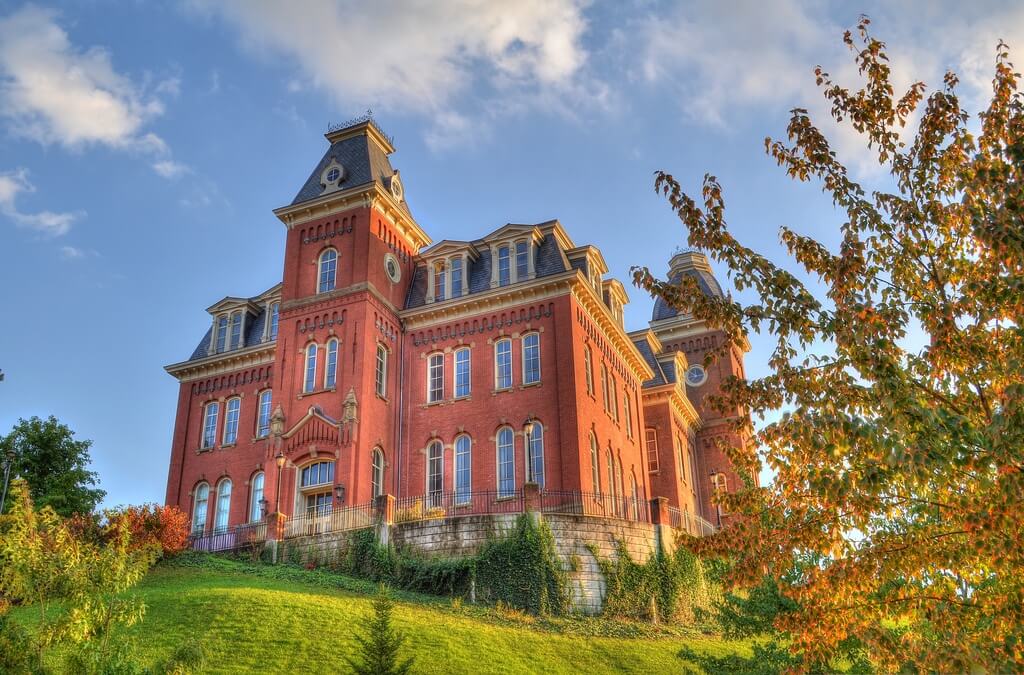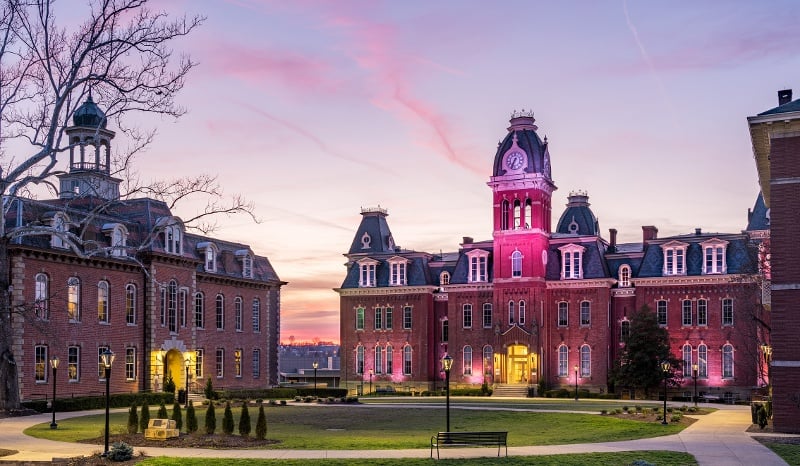
Meet Cullen Boyle, a Ph.D. student in the Mechanical & Aerospace Engineering department at West Virginia University.
We asked him some questions regarding his experience as a researcher in a graduate assistantship at WVU, and this is what he had to say:
What is your field of study? What department are you in?
CB: I am in the Mechanical & Aerospace Engineering department. I am studying Mechanical Engineering, and my research is Materials Science related.
What kind of graduate assistantship are you participating in? And how long have you held the GA position?
CB: I'm participating in a Graduate Research Assistantship. I have been working along side my advisor, Dr. Xueyan Song, since early September 2014 so just over 3 years.
What kind of responsibilities did you have?
CB: Some but not all responsibilities are as follows:
- Processing and fabrication in the lab
- Communicating and ordering gasses and materials from companies
- Maintaining, setting up, relocating, and calibrating instruments
- Contacting EHS for waste removal
- Mentoring and teaching undergraduate and graduate students
You mentioned in March that you were planning on graduating this past summer. Did you? Why or why not?
CB: I did not graduate in the summer as initially planned. I ended up pushing my PhD defense off until the end of September and extending my graduation to December of the fall semester. As in a normal job environment, there is always a lot to do including the occasional tasks you did not originally plan for, as was my case. This coupled with typical responsibilities of life made defending over the summer feel too pressured. I wanted to make sure I did not cut corners or cheapen the experience as this was the culmination of years of hard work and effort.
I wanted to be sure everything was the best version it could be.
Can you tell me a little bit about your dissertation?
CB: My dissertation title is "Enhancing the thermoelectric performance of calcium cobaltite through cation substitution and non-stoichiometric addition". Essentially, it is the fabrication of a material that has the capability to produce electricity directly from heat. The material being researched is calcium cobaltite which we then dope to improve its properties and performance.
The two methods discussed in my dissertation were through cation substitution and non-stoichiometric addition. Once a commercially acceptable level of performance is achieved the material is used to create a device known as a thermoelectric generator which can then be used in industry to capture and repurpose waste heat.
In what ways was the GA position rewarding and educational?
CB: I have experienced juggling multiple tasks at once in which I am expected to meet deadlines, outside of the classroom that is. I have better learned to move forward with my own goals and responsibilities while helping others progress as well. I have had hands-on experience in the lab, which will make me more marketable in finding a career.
I have in some sense managed the labs in that I have slowly taken on more and more responsibility to make sure everything is in place, running smoothly, and up to health code.
If you could give 1 piece of advice to a prospective graduate assistant, what would it be?
CB: My advice would be to make sure you find a project you are genuinely interested in. Graduate assistantships are valuable! Don't choose something just to fulfill your graduation checklist. This will allow you to immerse yourself in your research and be fully engaged.
In turn, this will allow you to have a higher understanding at a faster rate enabling you to ask certain questions which will be vital to one’s growth in their particular research field and on a personal level. It may not be your future career path, but it can be used as a foundation for later on and help shape you into the person you hope to become.
Looking back, how did your GA position at WVU boost your knowledge and hone your skills in a practical sense?
CB: You are exposed to a lot while holding a GRA position. Not only do you have to focus on your project, which you will need to gain a mastery of in order to effectively defend before your defense committee, but a lot of times your advisor will ask you to do tasks outside the scope of this. Maybe these tasks will necessitate your understanding of a setup and machine in which you don't have much knowledge in or experience using. This forces you to take it upon yourself to quickly learn a new trait in order to complete this task. This allows you to eventually become comfortable with the idea of working independently and learning new tasks outside your comfort zone.
In some cases, you will be given a task to work on in groups. This helps one build the skills needed to collaborate with peers which will also be useful later on in most careers. All experiences and skills I've acquired over the years will definitely be utilized in one form or another as I progress in my career.
Note: Are you interested in learning more about financing graduate school? Check out our other blog posts that focus on funding your graduate degree!
For a comprehensive look at what WVU thinks is important for you to know about graduate assistantships, check out our digital resource page — You Guide to Understanding Graduate Assistantships in Graduate School!










